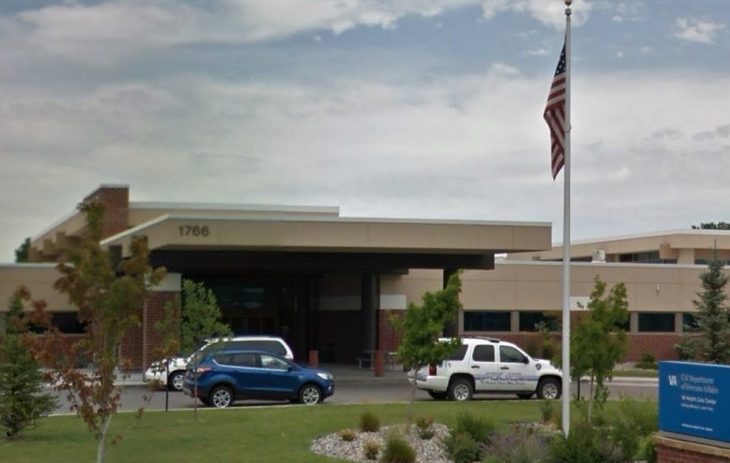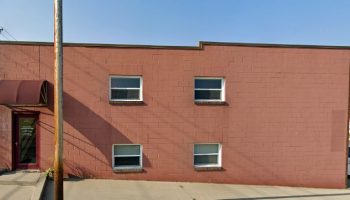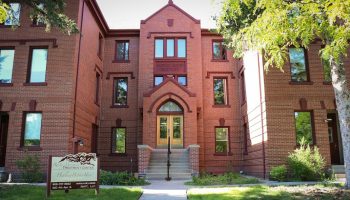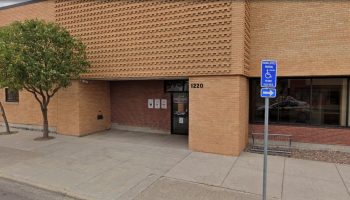About Benjamin Charles Steele VA Clinic
For veterans dealing with substance use issues ranging from hazardous alcohol consumption to potentially fatal addictions, the Benjamin Charles Steele VA Clinic in Billings, Montana, provides all encompassing assistance. In order to aid in recovery they offer medication, group therapy and individual counseling.
Veterans can participate in educational and therapeutic programs in their structured residential facility. Their program addresses homelessness, mental health disorders, substance abuse and unemployment. These programs offer a comprehensive strategy that incorporates community support, health maintenance and rehabilitation.
The clinic provides access to evidence based treatments for substance use disorders such as cognitive behavioral therapy. They also offer medications designed to treat alcohol, opioid and tobacco use disorders. Medication management is essential for controlling withdrawal symptoms, curbing cravings and avoiding relapse.
They treat alcohol use disorder with acamprosate, disulfiram, naltrexone and topiramate. For opioid use disorder, they use methadone, buprenorphine and extended release naltrexone. Since each person reacts to treatment differently, it is crucial that veterans speak with their healthcare provider to determine the best medication. Access to mutual help groups like SMART Recovery and Alcoholics Anonymous can supplement these medical interventions and improve recovery efforts.
Their programs are designed to offer care in a comforting and encouraging setting around the clock. The length of stay in the residential program can vary from a few weeks to several months with an average duration of roughly six weeks. The daily schedule is customized to meet each patient’s unique treatment needs. This typically consists of classes, counseling activities and peer interactions.
Levels of Care
-
Inpatient
Inpatient and residential programs provide round-the-clock medical and emotional support as you live at the treatment facility. This level of care may be recommended if you have severe addictions or mental health conditions since it removes outside distractions and allows you to focus solely on therapy.
-
Outpatient
In outpatient therapy, you’ll attend therapy sessions several times each week while living at home. This is ideal if you have a strong support system and a lower risk of relapse. Outpatient treatment offers flexibility to maintain work, school or family obligations.
-
Aftercare
Aftercare programs provide ongoing support after you complete a rehab program. They may include several components to help you maintain sobriety including therapy, community support groups and relapse prevention strategies. This gives you a network of resources as you reintegrate into your daily life.
-
Dual Diagnosis
Dual diagnosis programs address substance use disorders and co-occurring mental health conditions simultaneously. This integrated approach to care improves the likelihood of long term recovery and stability by addressing the root causes of addiction.
Detox Service Setting
-
Inpatient Detox
Inpatient detox occurs in a dedicated treatment facility. You’ll live there around the clock and receive intensive medical support and supervision to help manage your withdrawal symptoms. It is suitable for individuals with moderate to severe addictions as it ensures a stable detox environment.
-
Outpatient Detox
Outpatient detox gives you access to medically supervised withdrawal services while still allowing you to live at home. You’ll attend a clinic for treatment and monitoring. This flexible option is suitable for those with mild to moderate withdrawal symptoms who have strong support systems.
Programs
-
Adult (18+)
Adult programs address the substance use and life challenges specific to adults. Therapists can deliver sessions in individual, group and family settings. Services often include job support and life skills training in a structured environment.
-
Alcohol Detox
Alcohol detox programs offer medical support to help individuals withdraw safely from alcohol. Your care team may use medications to ease your symptoms and provide medical monitoring to address complications.
-
Cognitive Behavioral Therapy
Cognitive behavioral therapy focuses on changing harmful thought patterns and behaviors associated with addiction. You’ll learn healthier coping mechanisms by identifying and replacing negative thoughts. This improves your emotional resilience and decreases your relapse potential.
-
LGBTQ Friendly
LGBTQ friendly programs create an inclusive and affirming space for recovery. Treatment is sensitive to issues like discrimination and stigma. You’ll receive support and therapy that respects and acknowledges your unique experiences.
-
Men
Men's programs address substance use while also considering the social pressures, family roles and mental health concerns that are specific to men. You’ll learn healthy coping mechanisms as you build emotional resilience and develop communication skills.
-
Military / Veterans
Military and veteran programs offer specialized support for clients who served in the armed services. Programs focus on reintegration and healing within a structured and supportive environment that acknowledges the unique struggles of military life.
-
Opioid Detox
Opioid detox uses medications to ease severe withdrawal symptoms. It also includes medical supervision to help you manage potential complications. These services allow you to stabilize and begin a recovery plan.
-
Seniors (65+)
Senior programs address the unique needs of older adults like chronic pain, grief and isolation. Programs include peer support and medical oversight for age related health concerns. The goal is to improve quality of life and promote sober aging.
-
Women
Women's programs offer a safe and supportive space to focus on gender specific issues such as trauma, family roles and mental health conditions. Therapists tailor the sessions to address women's needs and foster empowerment in a healing and nurturing environment.
-
Young Adult (18 - 25)
Young adult programs are designed for individuals who are transitioning into adulthood. Topics of discussion typically include identity, independence and peer relationships. Providers may also offer life skills training and career support.
Payment Options
- Payment Assistance
- Free
- Medicaid
- Medicare
- Military Insurance
- Private Insurance
- Self Pay
Accreditations
-
 Joint Commission
Joint Commission
-
 CARF
CARF
Contact
1766 Majestic Lane
Billings, MT 59102





